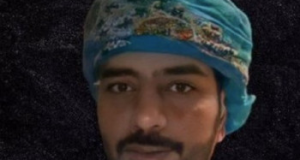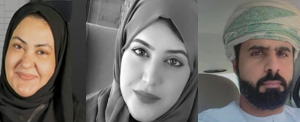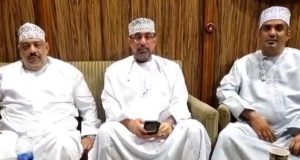The OAHR participated in a side event on “Digital Rights Across the Gulf and Neighbouring Countries”, held at the 38th Session of the United Nations Human Rights Council (UNHRC) in Geneva on 26 June 2018, organised by the Gulf Centre for Human Rights (GCHR. Habiba Al-Hiani, the executive director at OAHR participated in the event.
The event examined recent cases of human rights defenders imprisoned for their online advocacy including online activists from Oman such as Hassan Al-Basham who passed away on 28 April 2018 while serving a three-year sentence in Samail Central Prison after a sudden deterioration of his health due to the sharp drop in his blood sugar level according to the news received. According to our sources he was left for a undisclosed period of time lying on the ground without any medical attention.
Habiba Al-Hinai, head of the Omani Association for Human Rights (OAHR), described how difficult it is to promote human rights on-line, and to discuss violations, including about the Arab Spring in 2011, an oil workers’ strike in 2012, or Female Genital Mutilation (FGM) in Oman. “Due to my internet human rights activism, I was subject to dozens of interrogations and threats from the security services,” she said. In May 2012, Al-Hinai founded the Omani Group for Human Rights, which remains banned in Oman. Four co-founders of the group (out of the five) were brought to prison in obscure circumstances, she said, and the group’s social media accounts were continuously hacked and deleted.
Al-Hinai criticised provisions of the new penal code signed into law in January 2018 which target activists and public freedoms. The new Penal Code, published as Royal Decree No. 7/2018, “contains several vaguely-defined articles that could easily be used by the Internal Security Service (ISS), known for its history of human rights violations, to target human rights defenders and Internet activists, and to suffocate public freedoms,” she said.
The ISS in Oman uses “different kinds of tools as punishment for Internet activists, such as judicial, religious, social pressure and even family members. Sadly many activists end up in prison or banned from traveling and are not permitted to work” said Al-Hinai. Internet activist Hassan Al-Basham died in prison on 28 April 2018 while serving a three-year sentence, due to lack of treatment. On 13 June 2018, writer and Internet activist Abdulla Habib was released from Samail Central Prison after he was pardoned while serving a six-month prison sentence. Habib was charged with violating Article 19 of the Information Technology Crimes Act for “using the Internet in what would prejudice the state public order” in addition to “contempt of religions.”
At the end of her speech, Al Hinai urged the international community to increase the pressure on the Omani authorities to ensure that there is no further targeting of internet activists, which is in violation of their right to free expression, and to protect digital rights in Oman and across the gulf countries. Furthermore, she urged the international community to guarantee in all circumstances that all human rights defenders, Internet activists, bloggers, writers and journalists in Oman are able to carry out their legitimate human rights activities without fear of reprisals and free of all restrictions including judicial harassment, in order to open up civic space in the country.
Home » General News » OAHR participates in UNHRC Event on cyberactivism and repression of digital rights
 Omani Association for Human Rights
Omani Association for Human Rights


